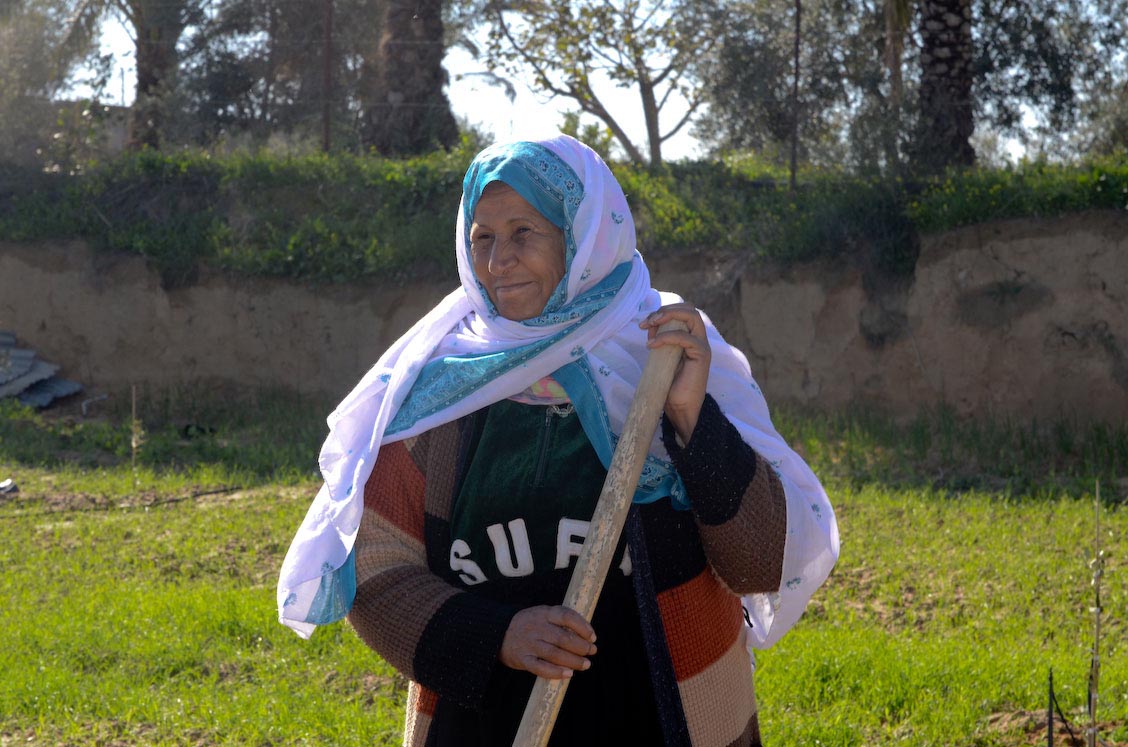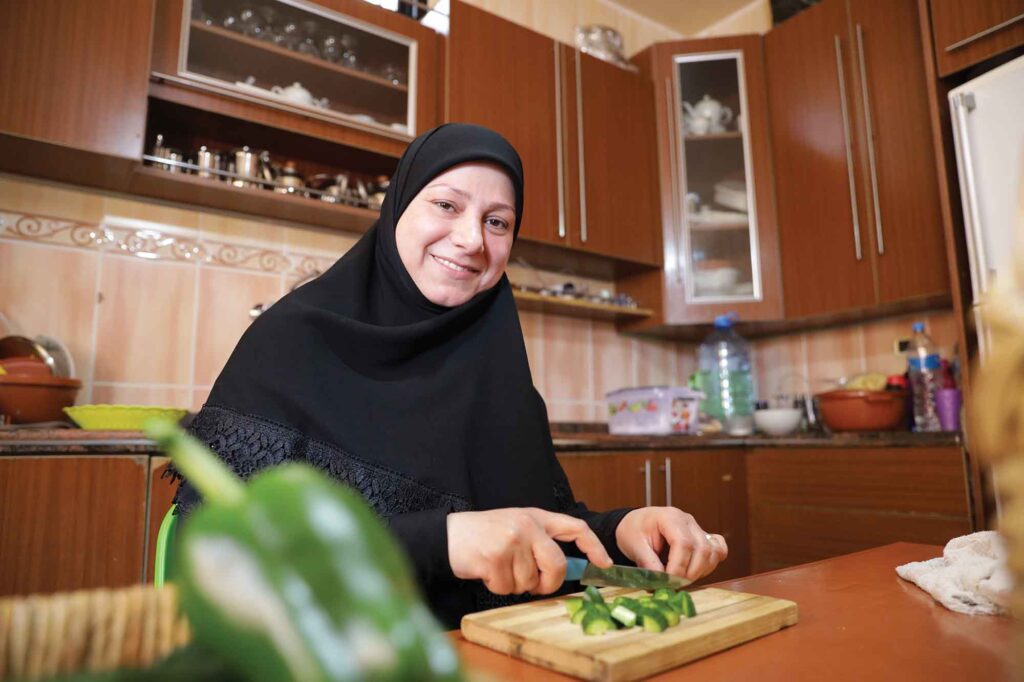Jan, 2015
Sabra Abu Naseer has been a farmer for 30 years. The 55-year-old divorced mother of three owns half an acre of land next to her house in Gaza.
Sabra is well known in the neighborhood for sharing her fragrant tea and freshly baked bread with women who gather for her lively conversations. “I inherited this piece of land from my ancestors. I learned all about agriculture from my father and from working in flower gardens for nine years in Israel,” says Sabra. “Life on the land isn’t just a choice we make. I think it is a passion we are born with.”


Life on the land isn’t just a choice we make. I think it is a passion we are born with.
Before the 2014 war in Gaza, Sabra was tending to four-year-old olive trees, fig trees, corn and other crops. But during the Israeli incursion, her land was bulldozed, along with other greenhouses in the area around Deir al Balah. “My house was partially destroyed, and we fled to center of the city just three hours before the intensive bombings erupted,” she says. “When I returned with my adult children and my extended family, I was shocked by the magnitude of the destruction,” Sabra remembers. No single plant was left. “I barely eked out a living from those olive trees. I was waiting for the harvest to sell other crops, but after the war I had nothing,” she added.
When the new planting season arrived, Sabra had no money to recover her land. But she did not waste time lamenting her loss. Instead, she searched for an opportunity to restart her farm. “I registered at the agricultural society nearby, and I was pretty sure I could meet the requirements for help,” she explains.
Her prediction was right. When Anera initiated its emergency Gaza land restoration project for family farms and partnered with the Rural Women’s Development Society, Sabra was one of the farmers chosen to receive help.
Post-war assessments report that the war destroyed 51% of Gaza’s farmland, greenhouses and irrigation systems.
Anera’s emergency land restoration program is needed to help revive Gaza agriculture. The project includes leveling and plowing damaged fields, installing irrigation pipes and providing olive trees and vegetable seeds to 28 families affected by the war.
A few weeks after Sabra applied for help, Anera’s agronomist and the society’s team informed her that her land would be revived. “It is unbelievable. They leveled my land for planting and provided 65 olive tree saplings, along with an irrigation system,” Sabra says. “I couldn’t have asked for more.” She adds that olive trees are symbolic of the Palestinian connection to the land and of longevity. “They are also significant for their beauty and their economic value, and I can tell the ones I received are the best quality.”
Sabra knows the olive trees need time to grow. “They need about three years of care so we can enjoy the benefits,” she says. In the short term, Sabra has received seeds for peas, onions and beans that will soon provide food for the family and for income.




